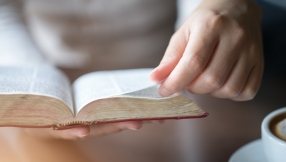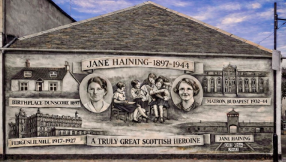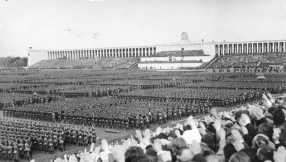CofE says it cannot support gay marriage
The submission says that changing the nature of marriage for everyone would be “divisive” and “deliver no obvious legal gains given the rights already conferred by civil partnerships”.
The Church said the consultation wrongly implied that there were two categories of marriage, “civil” and religious”.
“There is no distinction in law between ‘religious’ and ‘civil’ marriage. The Government‘s proposals would involve a dilution in the meaning of marriage for everyone,” it says.
“The consultation paper fails to acknowledge the essential point that in English law there has, down the centuries, been a single institution of marriage.
“That institution has not varied according to the form or ceremony by which a marriage has been solemnised.
“The solution proposed to deal with the concerns of the Church and other religious bodies about redefining marriage – i.e. that persons of the same sex should be able to enter into a marriage using civil forms but not religious forms – completely fails, therefore, to address those concerns.”
The Church expresses concern that churches will in the future be compelled to host same-sex weddings against their will.
It warns that while the assurances of safeguards for churches and other religious organisations may be genuine, churches would be unlikely to win if a claim of discrimination were to be brought against them in the domestic or European courts.
“To remove the concept of gender from marriage while leaving it in place for civil partnerships is unlikely to prove legally sustainable,” the submission states.
“It is unlikely to prove politically sustainable to prevent same-sex weddings in places of worship given that civil partnerships can already be registered there where the relevant religious authority consents.
“And there have to be serious doubts whether the proffered legal protection for churches and faiths from discrimination claims would prove durable.”
The submission raises questions about the future of the Church of England as the established Church in the land, given the inevitable clash between a new legal definition of marriage and its own definition that reserves marriage to unions between one man and one woman.
It states: "Were legislation to be enacted by Parliament that changed the definition of marriage for the purposes of the law of England, the status and effect of the canonical provisions that set out the Church‘s doctrine of marriage as being between one man and one woman would be called into question.
"In this way too the consultation overlooks the implications of what is proposed for the position of the established Church."
The consultation is due to close on Thursday. At the time of its launch earlier in the year, the Government made clear that the purpose of the consultation was to decide how to introduce gay marriage, rather than to determine whether the law should be changed.
Church leaders, including the Archbishop of York and the heads of the Roman Catholic Church in England and Wales, and Scotland, have spoken publicly against the plans.
The Church’s submission comes on the same day as a petition with more than half a million signatures supporting traditional marriage was submitted to 10 Downing Street.
The petition was organised by the Coalition For Marriage which has criticised the marriage reform as undemocratic.













